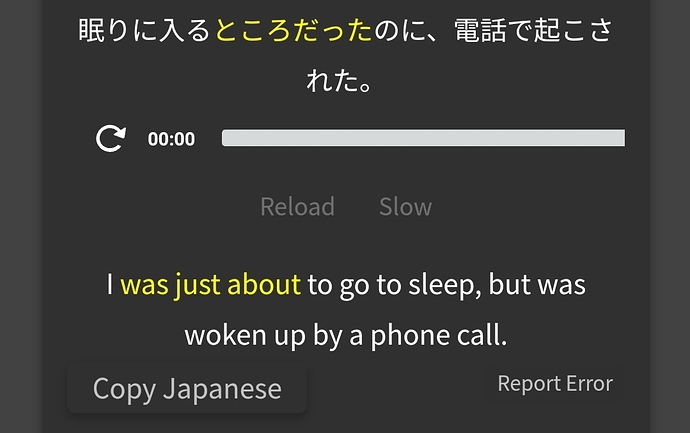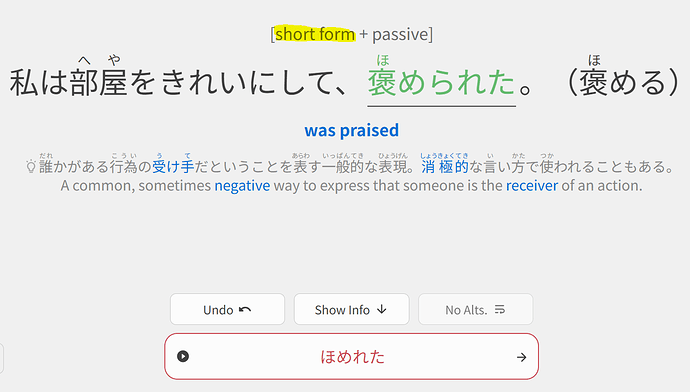Verb[Passive]
Structure
| Verb | Ex. dictionary form | Ex. Conjugated |
|---|---|---|
| V(る1) | 見 る | 見 られる |
| V(る5) | 座 る | 座 られる |
| V(う) | 歌 う | 歌 われる |
| V(く) | 歩 く | 歩 かれる |
| V(す) | 話 す | 話 される |
| V(つ) | 打 つ | 打 たれる |
| V(ぬ) | 死 ぬ | 死 なれる |
| V(ぶ) | 飛 ぶ | 飛 ばれる |
| V(む) | 休 む | 休 まれる |
| V(ぐ) | 泳 ぐ | 泳 がれる |
 ️Irregular Verbs
️Irregular Verbs  ️
️
する→ ! される
くる→ ! こられる
Explanation
When passive(受身) is used a person or a thing that undergoes the action(called patient/target in linguistics and literature) becomes the subject of the sentence rather than a person or a thing(called “agent”) “doing” the verb.
It used used when we don’t know the agent, or it is not important etc.
Active voice: パナソ〇〇クがこのカメラを作った。
(Panasoc made this camera.)
Passive voice: このカメラがパナソ〇〇クによって作られた。
(This camera has been made by Panasoc)
In Japanese passive is also used when someone did something wrong to someone, opposite to verb[て] + くれる/もらう construction. It is called suffering passive (迷惑の受身).
Active voice: 泥棒が食べ物を盗んだ。(Thief stole food.)
Passive voice:ものが泥棒に盗まれた。(The food has been stolen by a thief.)
Passive can be also used in honorific speech to easily create honorific words, but it will be covered later.






 It can be used together. Words like たいへん are also often added.
It can be used together. Words like たいへん are also often added.